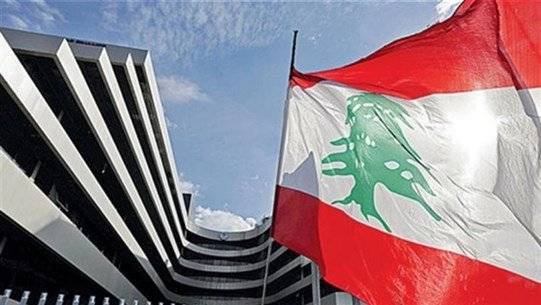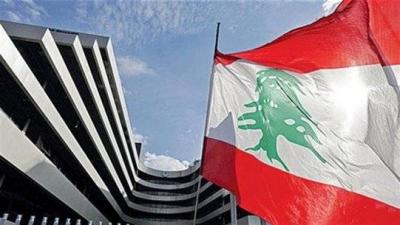The world deals with Lebanon on the basis of "take anything rather than take nothing." This principle, which started with humanitarian assistance, became evident in maritime boundary demarcation, and appears to extend to negotiations with the International Monetary Fund (IMF). The common factor among these three realities is the state's weakness and the haste of the controlling authority to achieve short-term results, even if they are merely a continuation of a series of disappointments.
The bet on successfully negotiating with the IMF and entering into a financing program has centered, and continues to center, around obligating Lebanon to implement reforms rather than merely obtaining a loan of $3 billion. Over the past three "lean" years, Lebanon has lost more than $20 billion as a result of stubbornness in reform, particularly in the public sector. The inflation of state institutions, lack of productivity, and a decrease in revenues not commensurate with the rise in expenditures are the core issues. Despite this, the official recovery plan agreed upon with the IMF insists on maintaining this structure, with only cosmetic adjustments that are insufficient to address the issues of waste and corruption within it. Conversely, it proposes writing off 70% of private deposits, which exceed $70 billion. Regardless of the arbitrary nature of the write-off, who can guarantee to the government and its creditors that after executing the planned "headcut," they will succeed in reducing the budget deficit, amending the current account, halting borrowing and the funding through money printing, and closing the deep political "caverns" in the state represented by various councils, funds, and bodies? How can the state achieve the desired growth rates of no less than 7% or 8% after it has cut down capital and alienated investors? Will it be able to escape the cycle of addressing purchasing power with the taxes and fees it intends to impose, and what will be countered with parallel adjustments in wages?
Doubt about reaching an agreement with the "Fund" raises many questions that astonish Dr. Munir Rashid, former economist at the IMF and current president of the Lebanese Economic Association. He questions the insistence of some parties on the role of the current government and the IMF, despite their failure to achieve any accomplishments during nine months in office. Despite all pressures, the government has failed to achieve a single reform breakthrough—how will it manage to do so during breaks? He points out that "the numerous preconditions required in the preliminary agreement with the Fund's mission will take at least a full year, and possibly more, to accomplish," according to Rashid. This includes "evaluating 14 banks, preparing current and medium-term budgets, and forensic auditing of the Central Bank of Lebanon, in addition to no less than eight other prerequisites, delaying agreement with the IMF management. It is known that the Fund usually focuses on a limited number of immediate pre-reforms that can be executed promptly, such as: freeing the exchange rate, and adjusting electricity tariffs to test the state's seriousness and ability to reform. The notion that the preconditions represent a complete reform program raises doubts about the seriousness of reaching an agreement with the Fund, as well as about the transparency of the Fund's practices in dealing with the Lebanese state."
Contradictory Proposals
On another note, the "pride" in reaching a preliminary agreement with the Fund's mission and depicting it as an unparalleled achievement raises skepticism among citizens in general and observers in particular. The reality is that "the Fund manages the economy according to its whims, without listening to the state's opinions or those of relevant sectors and institutions," according to Rashid. This is clearly evidenced by the long-standing and short-term experiences with the IMF. While the government initially sought to establish a sovereign fund for public institutions to compensate depositors, the IMF recently rejected this proposition, using the excuse that the public sector, in its current state, cannot generate any profits. It should be noted that the Diab government believed that the public sector would become profitable after reforms and privatization, and would then be fruitful enough to compensate for depositors’ losses. The IMF bases its decisions on weak assumptions and disregards the government's opinions and even its reformist ideas. Furthermore, the position of the IMF mission contradicts the Fund's general policy, which has historically favored privatization to rescue economies when public sector institutions are the primary cause of collapse. It is well-known that the public sector as a whole has been at the core of the Lebanese crisis.
Rashid adds that in the long term, "the IMF has repeatedly congratulated the state for maintaining a fixed exchange rate policy (pegged to the dollar), considering it one of the pillars of the Lebanese economy." However, in reality, it was one of the main reasons for the current collapse. The IMF emphasized that fiscal policy should target the pegged exchange rate and attract foreign currency, thereby encouraging the state to borrow in foreign currencies to maintain the reserves of the Central Bank, which led to a crisis of servicing this debt.
Wasting Three Years
It appears that the IMF did not pay any attention to the opinions of other Lebanese institutions, which are more attuned to the existing situation and the justice of the reform process. It "wastes valuable time requesting the preparation of plans and strategies," says Rashid. The state cannot undertake comprehensive reform all at once, but rather must follow sequential steps. This waiting for a complete plan has wasted three years so far. One can conclude that "the current mission of the IMF has not understood the required reforms and has squandered time on its repetitive requests. It has also failed to achieve justice in attributing responsibility for the collapse to the accountable parties," adds Rashid. "It has chosen to absolve the state and regulatory authority, which were the main causes behind the unjustified collapse, shifting the greater burden onto citizens and banks. This approach is the simplest but not the best." In parallel, the government has continued to instill panic in citizens, leading them to believe that the write-off of deposits is the only solution, and that the alternatives would be worse. Thus, it has deliberately approached the crisis with a challenging and threatening manner devoid of logic, rather than adopting a persuasive approach when possible. It is known that there are several solutions that can restore citizens' confidence in the banking sector without destroying it and the deposits.
The Solution is Not Impossible
Implementing reforms in Lebanon is not a miracle. It is erroneous to consider the crisis as an anomaly with no precedent in the world. On the contrary, it is rare for a country to find itself in a financial crisis while possessing currency reserves and foreign assets valued at $44 billion (at the start of the crisis). This figure exceeds the gross domestic product and represents four times the current account deficit. In reality, "it is extremely strange for any economy with such enormous wealth to collapse," believes Rashid. "Countries that struggle economically and have an economic size comparable to Lebanon lost most of their reserves when resorting to the IMF and others, retaining only a few months of reserves to finance imports, such as Jordan and Tunisia (and there are many similar examples)." Therefore, according to Rashid, what we need today are "exceptional capabilities and advanced knowledge to implement economic reforms to save Lebanon and deal with international institutions, without submitting to them. Political parties must take the initiative to choose the best candidate for the premiership who can inspire confidence and rescue Lebanon from its plight."




